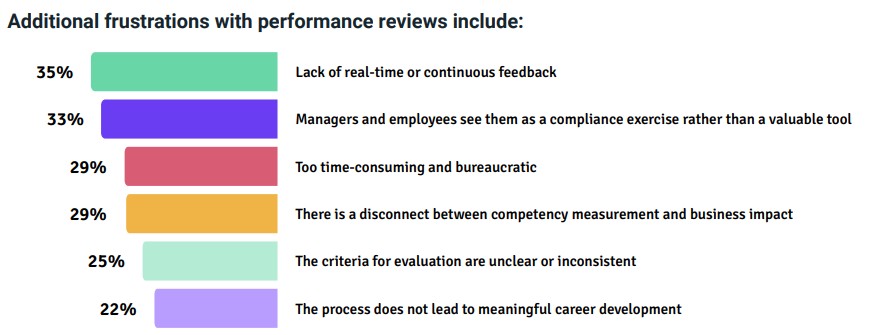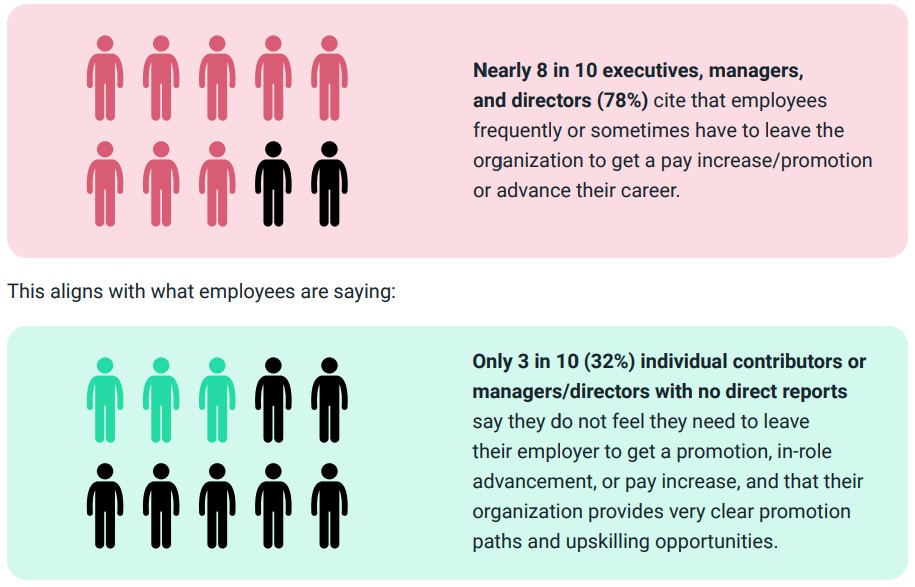
What are top frustrations with employee performance reviews?

Workers are increasingly dissatisfied with how their current employers conduct performance reviews, according to a recent report.
Only three in 10 workers (29%) are “very satisfied” with the system their company currently uses to track employee competencies and capabilities. Less than half (46%) believe their performance review accurately reflects their contributions, notes Acorn, a provider of performance and learning management platforms.
Six in 10 (60%) feel the current metrics their organisation uses to measure competencies or capabilities are not—or are only somewhat—fair. Meanwhile, 43% believe performance reviews do not accurately reflect employee capabilities.
Workers also cited the following issues:

Only 19% of individual contributors believe their organisation’s metrics are fair.
A quarter (25%) of workers believe their performance reviews were negatively affected by their supervisor's personal biases, according to a previous report.
Meanwhile, 66% of executives express confidence in their tools and frameworks, and believe their metrics are fair. These findings come from Acorn’s survey of 1,239 U.S.-based full-time employees at organisations with 1,000+ staff, spanning executives, managers, and individual contributors across HR, learning and development, and business functions.
This is despite the fact that 78% of executives, managers, and directors say that employees frequently—or sometimes—must leave the organisation to receive a pay increase, promotion, or career advancement. Most workers share this view.

“Most organisations still have no reliable way to evaluate performance based on what people are actually capable of. No wonder 60% of employees say their metrics are not fair. The industry has spent decades and millions of dollars trying to fix the wrong problem,” says Keith Metcalfe, president of Acorn.
“We don’t need another HR process; we need real capability systems that objectively and consistently map what people can do, what they need to learn, and how that moves the business forward. Anything less pushes great talent out the door,” Metcalfe adds.
More than three in four employees have expressed their desire to opt out of 360-degree feedback evaluation systems amid concerns that it could be misused in the workplace, according to a previous survey.
According to workforce management platform provider Rippling, employers should avoid making performance reviews feel “adversarial in nature.”
“It’s important to ensure that the process is seen as a positive experience that encourages employee development while aligning with your company’s goals,” the company states.
To get the most out of a performance review, leaders should do the following, according to Rippling:
Performance reviews aren't dead—they just need a shakeup, according to a previous report.